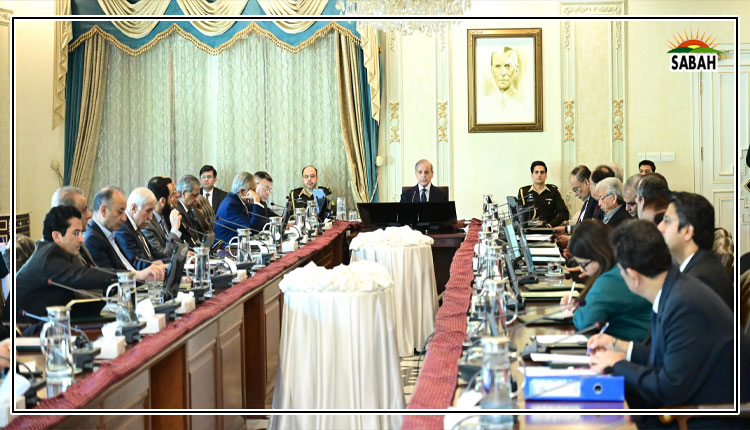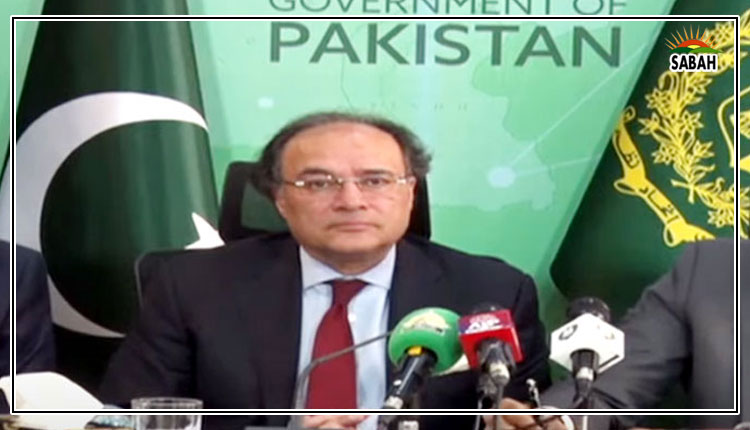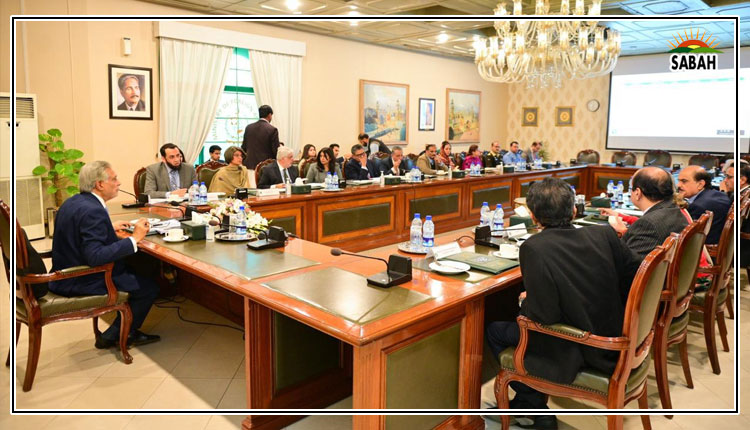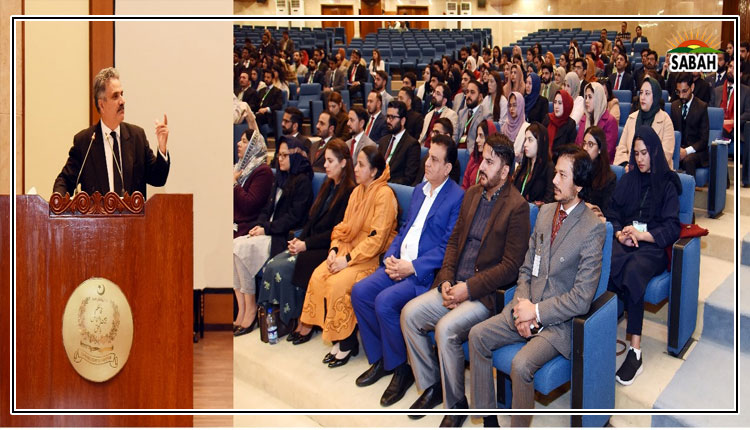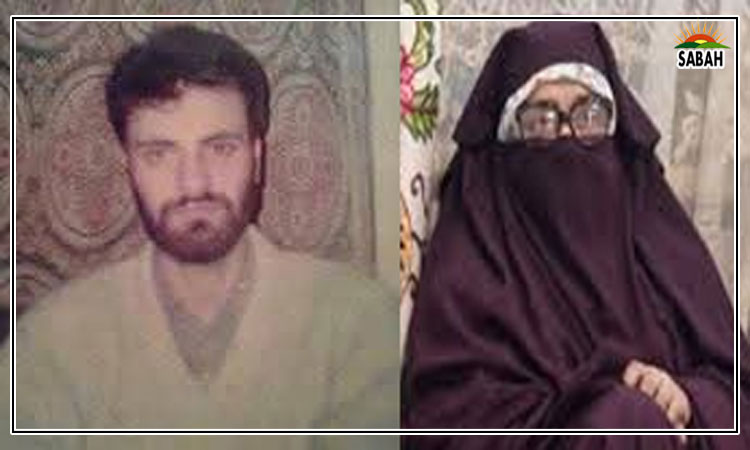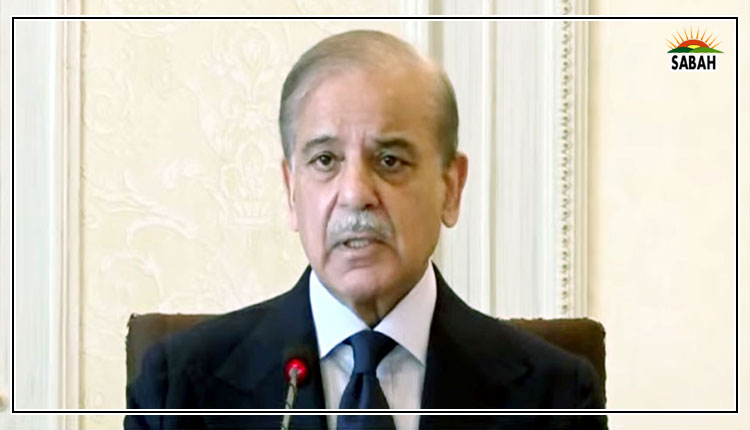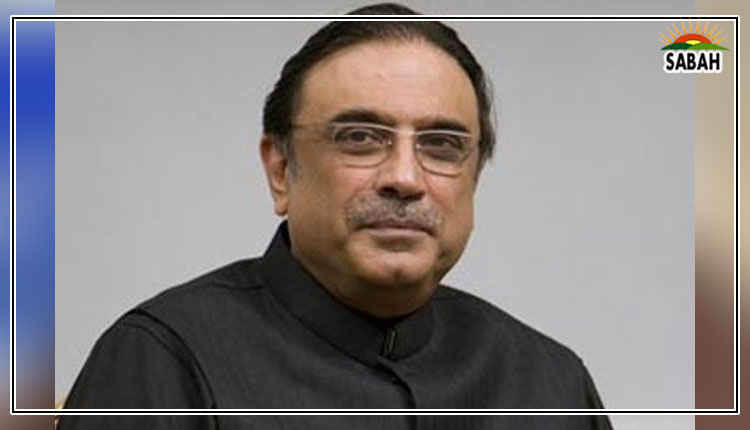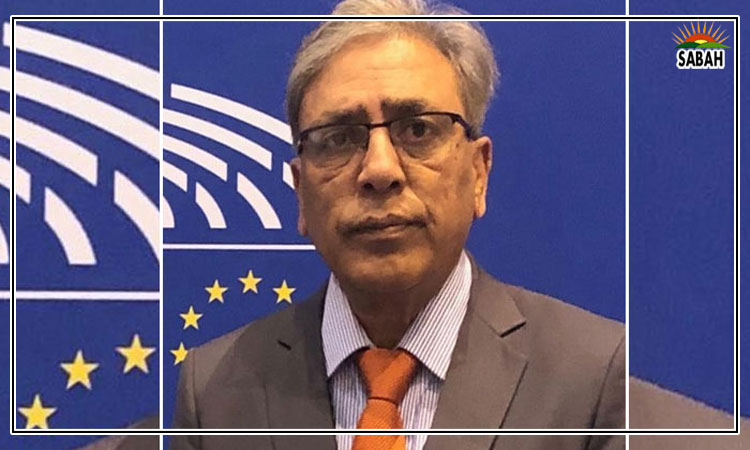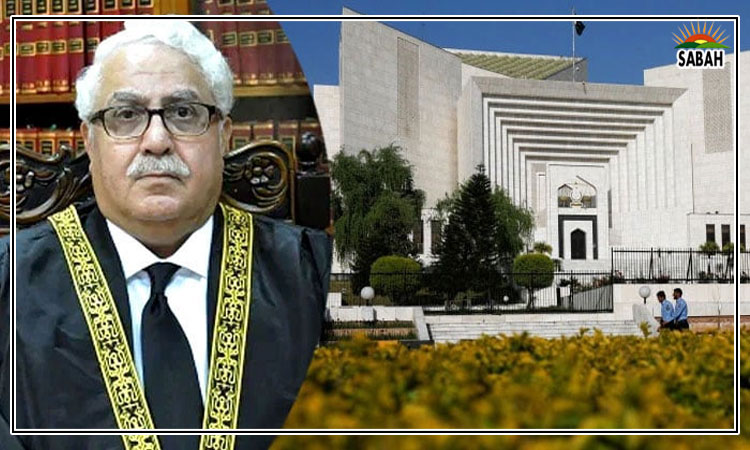Supreme Court turns down Justice Sayyed Mazahar Ali Akbar Naqvi’s request to stay SJC proceedings against him
ISLAMABAD, Jan 09 (SABAH): The Supreme Court of Pakistan on Tuesday dismissed a plea to halt the proceedings of the Supreme Judicial Council (SJC) against Justice Sayyed Mazahar Ali Akbar Naqvi.
The three-member bench, led by Justice Aminuddin Khan and including Justice Jamal Khan Mandokhail and Justice Musarrat Hilali, heard Justice Naqvi’s petition.
During the proceedings, the court denied the request to stay the SJC proceedings against Justice Naqvi and directed him to file an amended petition.
At the outset of the hearing on Tuesday, Justice Naqvi’s counsel said Article 209 (Supreme Judicial Council) of the Constitution gave protection to judges. The lawyer advised the bench to look into the said law and also the SJC Inquiry Rules 2005.
“Under the rules, the role of a complainant against a judge is very limited,” he contended. “The president of the state or the SJC itself initiates proceedings against judges,” he added.
Here, Justice Mandokhail inquired if bar councils could file a complaint against a judge, highlighting that bar councils had also submitted requests during Justice Isa’s case.
“Justice Yahya Afridi had said that complaints against judges can be made by bar councils,” the judge added.
For his part, Makhdoom pointed out that the SJC had also dismissed 21 petitions on the day it decided to proceed ahead on the complaints filed against Justice Naqvi.
At this, Justice Khan said the matter was before the apex court now, adding that the court thought the complainants should be issued notices otherwise proceedings would not be able to proceed.
“How can we not listen to the stance of complainants when you are saying that the complaints are based on malice?” Justice Mandokhail asked, to which Makhdoom said the court had to protect its institution.
Justice Naqvi’s counsel went on to say that if the complainants were made parties to the case, applications under Article 184(3) — an inherent power of the Supreme Court to enforce fundamental rights as guaranteed under the Constitution — would be filed against all the complaints dismissed by the SJC.
Here, Justice Hilali asked if anonymous petitions against the judge were also heard to which Makhdoom replied in the negative. “There is no anonymous complaint against Justice Naqvi,” the lawyer said.
Subsequently, the apex court rejected Justice Naqvi’s request for an injunction on the SJC proceedings. Justice Mandokhail said the SJC was a constitutional body and the Supreme Court could not order it to do anything.
In his defence, Makhdoom Ali Khan recalled that the court had ordered a stay on the SJC proceedings in the case of former CJP Iftikhar Muhammad Chaudhry.
Justice Mandokhail asked what would happen if the Supreme Court granted the injunction and the SJC continued with the proceedings while Justice Khan said the court had to look at the case of the parties involved in the current matter.
The court subsequently ordered that the complainants against Justice Naqvi, including Mian Dawood Advocate, be made parties to the case and adjourned the proceedings indefinitely.
The SJC will next resume its proceedings against the judge on Jan 11 (Thursday).
Earlier on Monday, legal representatives of Justice Naqvi withdrew objections to the bench hearing their client’s petition against misconduct proceedings initiated by the SJC.
The SJC had issued a show cause notice to Justice Naqvi on October 27 of the previous year, citing various complaints alleging bench manipulation and financial misconduct by the Supreme Court judge. Another show cause notice was served on November 22, demanding a detailed response from the judge regarding the allegations raised by multiple petitioners.
In response, Justice Naqvi challenged the SJC proceedings and its notices in the apex court, leading to the formation of a three-member bench to address the matter. Initially, Justice Naqvi objected to the formation of this bench, as noted by SJC member Justice Ijazul Ahsan, who stated that it was not formed in consultation with a three-member committee established in accordance with the Supreme Court (Practice and Procedure) Act, 2023.
However, on Monday, Justice Naqvi’s lawyers, Makhdoom Ali Khan and Sardar Muhammad Latif Khan Khosa, expressed confidence in the bench and withdrew their objections.
During the hearing on Monday, Justice Mandokhail commented on the prevalence of derogatory remarks about judges on social media and referred to an allegedly attributed statement from a judge’s daughter, highlighted as breaking news. He expressed concern about baseless complaints against judges, emphasising that judges lack the means to respond to such allegations.
The court noted that Justice Naqvi had not named the individuals who filed complaints against him with the SJC as respondents in the case, a unique occurrence that requires examination.
Makhdoom Ali Khan argued that once a complainant submits a grievance to the SJC, their role terminates. He contended that the council’s actions, termed administrative, can be halted by a Supreme Court bench, citing precedents. He further alleged that the SJC failed to meet legal requirements before issuing show cause notices to Naqvi, suggesting they were based on assumptions rather than facts.
Justice Mandokhail questioned who would determine whether the show cause notices were based on facts or assumptions.
The bench reserved its order on a petition by complainant Mian Dawood Advocate, seeking the removal of Justice Ijazul Ahsan from the SJC bench handling complaints against Justice Naqvi.
Dawood, present in the courtroom, claimed that when he requested Justice Ahsan’s recusal, the SJC member refused to step down from hearing the complaints against Naqvi. Justice Mandokhail noted the principle that a judge facing objections should decide on their own recusal in judicial decisions.


